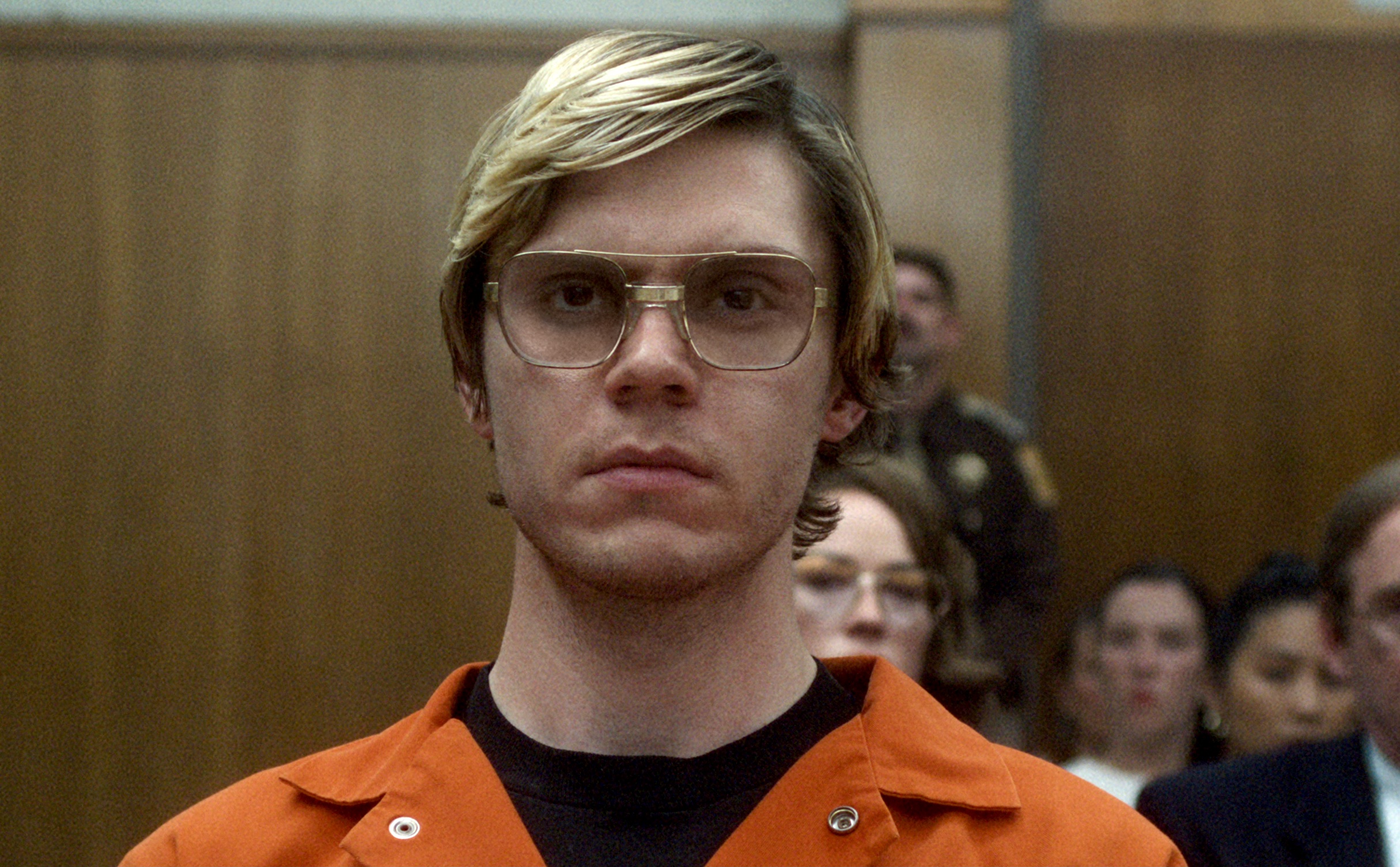We need to talk about Ryan Murphy.
The writer-director-producer came under fire in recent weeks for his latest project, the Netflix series Monster: The Jeffrey Dahmer Story, and its portrayal of the serial killer’s real-life queer victims. Rita Isbell, the sister of Dahmer victim Errol Lindsey, has spoken out against the series and its use of her likeness and her brother’s story without her permission, while several Black crew members say the production gave them “PTSD.”
Murphy’s next project on the docket is the latest season of American Horror Story, set to drop its first episode Oct. 19. This season of AHS will centre on New York in the 1970s and a serial killer targeting the queer community. Sound familiar? For those keeping track at home, that’s two back-to-back prestige “serial killer who targets queer folks” TV series from the same dude, which, frankly, is too many.
On the heels of Monster, AHS: New York seems almost a peak distillation of the Murphy formula, and I—along with many internet folks—fear it will be more of the same.
Should we trust Murphy, one of the people who gave us all of the ham-fisted nuance of Glee, The Prom and Ratched to tastefully depict queer and trans folks during the AIDS crisis being pursued by a homophobic serial killer? Especially considering Murphy and frequent collaborators Ian Brennan and Brad Falchuk (who each have done their fair share of this, too, as co-creators on several of the above projects) seem to prioritize making shows where shock—and a spicy awards reel for marquee actors—tend to overpower any sense of nuance in telling queer stories? Fresh off of Monster and AHS: New York coming back to back this fall, perhaps it’s time to give one word to the king of queer trauma on TV: enough. Take a step back! Perhaps the world doesn’t need another show about someone killing queer people from you!
Murphy has made his name mining queer drama and trauma, to varying degrees of success. And to be fair, it’s not all bad—he signed a $300 million deal with Netflix for good reason, and has used his platform to elevate queer and trans voices, including Janet Mock, Billy Porter and Brian Michael Smith.
Some projects with his name attached have moved the needle on Black queer and trans representation in TV (Pose), innovated the limited-series medium while telling queer stories (early seasons of American Horror Story) and even showcased nuanced trans characters on a network procedural TV (9-1-1 Lonestar). Even Murphy’s arguably most notorious project, Glee, impacted a generation of queer youth. In 2009, when Glee premiered, there was nothing like it on TV, and I can genuinely say it changed my life—I’m not the only late-20s queer who wouldn’t be where I am today if Kurt Hummel hadn’t fought Rachel Berry to sing “Defying Gravity.”
In a 2020 Guardian interview, Murphy spoke about his conscious push to tell queer stories.
“I only wrote or created shows that I really wanted to watch, so they inevitably had gay characters and trans characters and minorities,” he says. “And I made them the leads instead of the sidekicks, because that is what I did in my own life.”
But in recent years, Murphy has also developed a troubling fascination with true crime and trauma. It works to great success in something like The People v. O.J. Simpson: American Crime Story, which used its depiction of real events to craft a nuanced take on the failures of the justice system. But in Monster, Murphy and co.’s stated intent to centre Dahmer’s victims is overshadowed by their apparent lack of even checking in with those victims—not to mention Murphy’s incessant need for a flashy central performance, this time from one of his regulars, Evan Peters.
It’s worth noting that I singled out Murphy, despite his usual work with co-creators and writers like Brennan and Falchuk, as he’s developed a clearly defined brand of show—and makes a lot of them. While Brennan and Falchuk tend to stick to the sidelines, Murphy hasn’t been quiet about that brand, including in an expansive New Yorker profile in 2018, where he detailed his endless churn of new projects and workflow.
AHS: New York looks to be much of the same, with a flashy description that feels like a recipe for a Ryan Murphy production (complete with a suspiciously white cast list full of Murphy favourites like Zachary Quinto and Billie Lourd). There will certainly be shocking outfits, some frightening images and clunky queer storylines; the usual AHS formula. And Murphy himself still has fingers in the pie, with the writing credit (alongside Falchuk) for AHS: New York’s premiere episode.
Monster and this new AHS season are sure to generate buzz, but they should also signal an invitation to step back and consider the Murphy machine. We’re reaching peak capacity for Murphy content, particularly the trauma porn of Monster and AHS. This isn’t 2009, where I was grateful to see any gay person, even a poorly drawn one, on TV.
Murphy himself has helped build a pop culture space for all sorts of queer and trans stories that go beyond trauma and violence, so why are we back in this exploitative space? Let’s pump the brakes on the queer trauma machine. Enough is enough.


 Why you can trust Xtra
Why you can trust Xtra


